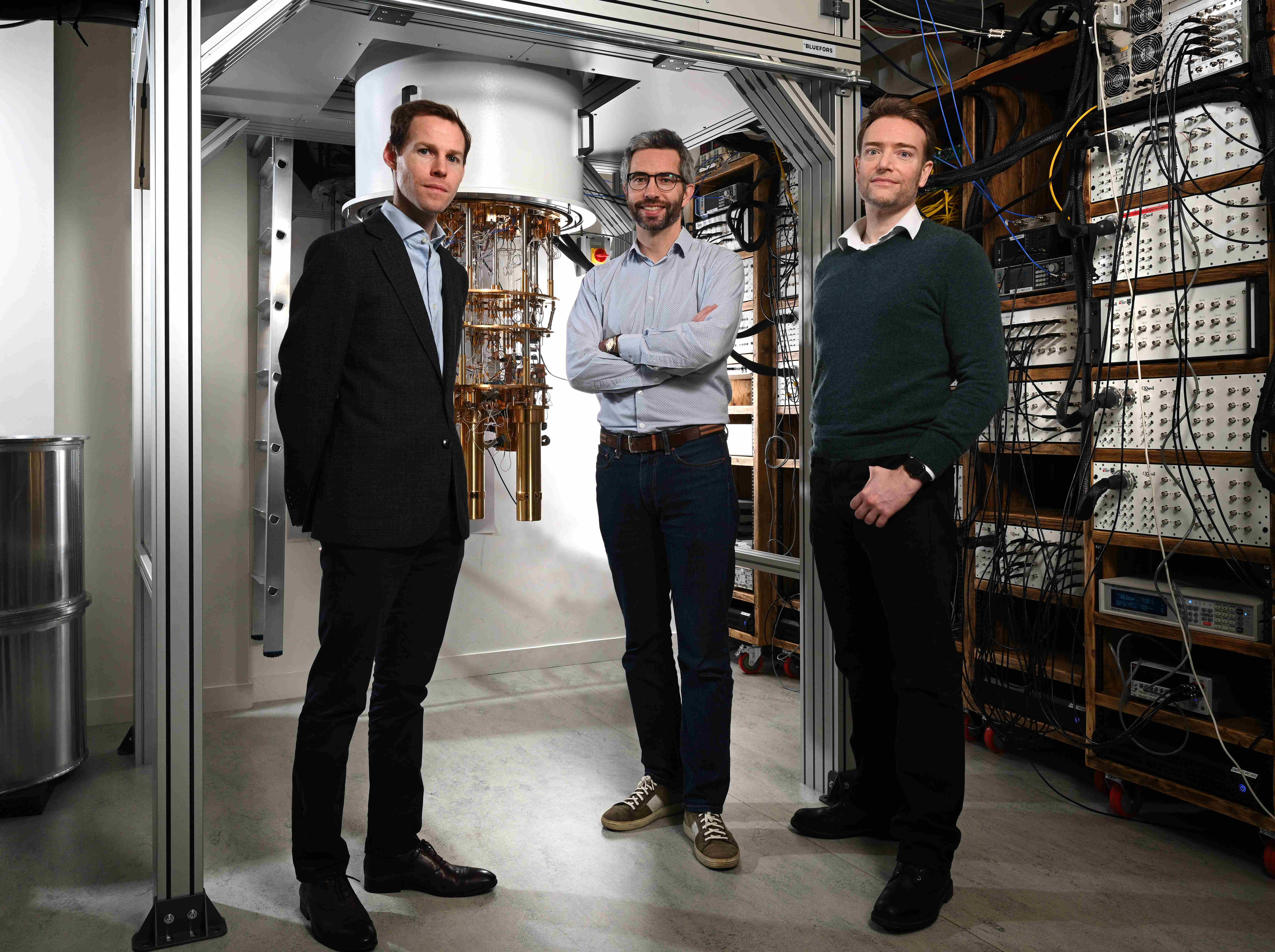U.K. quantum computing company Quantum Motion has raised £42 million ($50.5 million) in an equity round of funding led by Bosch Ventures (RBVC), with participation from Porsche, the U.K. government’s National Security Strategic Investment Fund (NSSIF) and a host of additional investors.
Quantum computing, for the uninitiated, builds on principles borrowed from quantum mechanics, with a focus on quantum bits (qubits) rather than atoms, promising to advance what’s possible with computers by performing complex calculations in a fraction of the time. Use cases may include accelerating new drug discoveries, or powering the vast amount of data processing required for AI applications.
“Quantum computers will think in totally different ways to computers today,” Quantum Motion CEO James Palles-Dimmock explained to TechCrunch. “Problems that would take a supercomputer thousands of years to crack could be solved by a quantum computer in minutes. The earliest impact will be in areas related to materials science including energy materials, chemistry such as drug discovery, or optimization — possibly stretching to logistics and transport.”
Founded in 2017 by Professors John Morton and Simon Benjamin from UCL and Oxford University, respectively, Quantum Motion is setting out to create “scalable quantum computers” through new quantum computing architectures that are compatible with established silicon processing.
As with normal computers, heat adversely impacts the qubits in quantum computing, meaning that quantum computers need to be kept very cold. Quantum Motion says it has designed integrated circuits that are capable of “generating, routing and processing signals at deep cryogenic temperatures,” operating at just a few tenths of a degree above absolute zero.
“Our silicon-based quantum chips are typically a few millimeters across, and we expect that the cooling system required to operate the chip will have a form factor similar to a standard 19-inch server rack,” Palles-Dimmock said. “Being able to show that our approach to quantum computing doesn’t require data centers the size of football pitches, or vast CERN-type facilities, was one of the motivations behind our central London location.”

Quantum leap
Quantum Motion’s latest raise comes amidst a flurry of activity in the quantum computing space. In the past month alone we’ve seen French startup Pasqal raise €100 million, while Israel’s Quantum Machines closed out its Series B round at $70 billion and Australia’s Quantum Brilliance secured $18 million. Elsewhere over the past year, Finland’s IQM, France’s Alice&Bob and U.K.-based Quantum Circuits have all raised sizeable chunks of VC cash.
Quantum Motion and its ilk are up against a host of competition in the big tech sphere too, including IBM, which recently unveiled its 433 qubit Osprey quantum computer, while Google gained a new quantum computing sibling last year after Alphabet spun out Sandbox AQ as a standalone company, going on to raise $500 million in funding just last week. Elsewhere, other tech juggernauts such as Microsoft and Intel are also investing heavily in quantum.
So, what can Quantum Motion and its upstart brethren bring to the mix that the deep-pocketed behemoths can’t?
“Compared to the big tech companies, our advantage is that we are agile, focused on a single goal and have a team that is comparable with the best in the world,” Palles-Dimmock said. “We have a highly skilled team across multiple disciplines including IC (instrumentation and control) engineering, quantum theory, hardware and software, and deep relationships with world-leading universities that helps us seek out that talent.”

Quantum Motion had previously raised around $24 million in equity and grant funding, and with its fresh cash injection, the company said that it plans to accelerate its development of silicon quantum processors through forging “deeper ties” with manufacturers. Indeed, the startup’s strategic investors, including Bosch and Porsche, provide some clue as to the impact that Quantum Motion is looking to have on industry — quantum computing could transform battery technology as we know it, allowing scientists and researchers to simulate batteries to better understand what is going on at a molecular level to optimize materials and thus improve energy density.
But the true possibilities are effectively endless, and it’s difficult to conceive just how transformative quantum computing will prove.
“Just like computing in the early 1960s, it was hard to predict just what amazing things computing would lead to, and yet it has revolutionized our society,” Palles-Dimmock said. “It was only when computers got into the hands of people everywhere that we got really creative and pushed the boundaries of what computers can do. Quantum computing will be similar, we know that it will be transformative in areas like drug discovery, battery technology and more, but we won’t know just how transformative they’ll become until we get there.”
It’s worth noting that while quantum computing is advancing at breakneck speed, it’s still in its relative infancy, and the fruits of all the current R&D labor we’re seeing across the board may still be some years off.
“Many quantum computing companies exist today and they are all in R&D mode,” Palles-Dimmock said. “Investors know it will take time. It may be the end of the decade before we have really impactful quantum computers. This raise enables us to strengthen our relationship with manufacturing partners and demonstrate prototypes that can scale to millions of qubits.”
Quantum Motion’s latest cash injection included contributions from Octopus Ventures, Oxford Sciences Enterprises, British Patient Capital, Inkef, Parkwalk Advisors and IP Group.































Comment